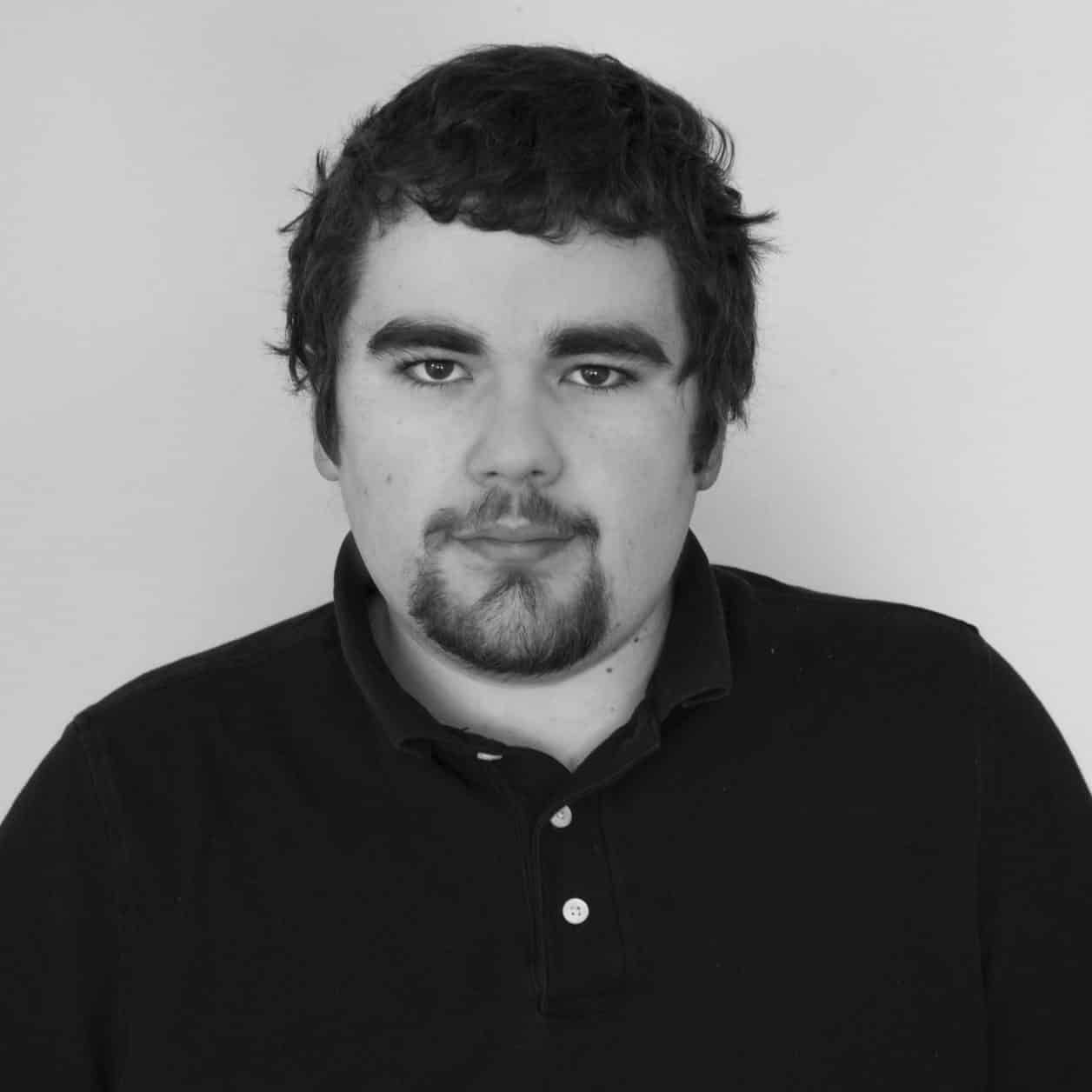Chris Farnsworth is a problem solver. The Vermont Tech graduate student, who is pursuing a master’s degree in Computer Software Engineering, says he thrives on learning new things and determining how software works at a fundamental level. Ultimately, he wants to develop software and solve complex problems that will benefit society.
“I’m very much a utilitarian, and I enjoy the act of coding as long as it benefits someone in some way,” says Chris, who graduated from Vermont Tech in 2016 with a bachelor’s degree in Computer Software Engineering. “Ever since I was little, I’ve enjoyed solving puzzles. I like figuring out things and then moving on to the next set of problems.”
The Georgia, Vermont, native chose Vermont Tech for both his undergraduate and graduate studies because of the school’s accessibility and affordability.
“As long as you’re willing to show up and learn, Vermont Tech is a really positive environment that fosters learning,” he says. The Computer Software Engineering program, which is based at the Williston campus, is taught by a variety of experts, including Professors Craig Damon and Peter Chapin—two individuals that have made a difference in Chris’s education. “It always feels like the Computer Software Engineering education we’re getting at Vermont Tech is one step ahead of everybody else.”
In May, Chris was recruited by Peter Chapin to join the CubeSat Development Team as a software engineer. Chris received a fellowship from NASA and the University of Vermont to work on the Lunar IceCube, a satellite expected to launch in October 2018 and orbit the moon. The main objective of the mission is to observe volatile compounds on the moon, particularly water in all of its phases.
Years ago, Chris never imagined he would be working as a software engineer for something like Lunar IceCube. But something about software engineering clicked for him in high school. Chris first realized he was interested in computer software engineering while taking an algebra class.
“I was playing with my graphing calculator during a high school algebra class and I realized that I could write programs on it,” he says. “I was bored in class, so I figured, ‘Why not learn a new life skill?’”
Chris expects to complete his master’s degree in 2018 and will look for a job in his field. He’s open to staying in Vermont or relocating for his job. As long as there are computers, there will always be a demand for computer software engineers. Still, Chris says the challenge of this field is to keep up and to not stagnate.
“You have to evolve with this career field, and you’ve got to keep learning,” he says. “I think as long as you stay on top of trends and technology, you can have a stable career path and grow.”
Chris currently works at MBF Bioscience in WIlliston.He says, “I am a software engineer on a product suite called Biolucida, which uses cloud technology to connect scientists all over the world to their personal or team collections of microscope images. It also provides annotation and organizational features.”
Like this story and want to share your own? Send us your feedback!
